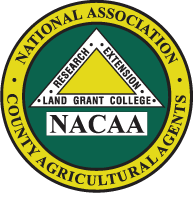SUCCESSFUL USE OF WEBINARS FOR COOPERATIVE EXTENSION PROGRAMMING
Proposed by: Jenny Carleo
Presenters: Carleo, J. , Agricultural Agent, Rutgers NJAES Cooperative Extension of Cape May County, Cape May Court House, NJ 08210
Colucci, S. J., Area Extension Agent, North Carolina State University Cooperative Extension, Hendersonville, NC 28792
Komar, S.J., Agricultural Agent, Rutgers NJAES Cooperative Extension of Sussex County, Newton, NJ 07860
Rozier-Rich, S., Assistant Professor and Tourism Extension Specialist, North Carolina State University, Raleigh, NC 27606
Schilling, B., Assistant Extension Specialist, Rutgers NJAES Cooperative Extension, New Brunswick, NJ 08901
Tomas, S.R., Assistant Professor and Tourism Extension Specialist, North Carolina State University, Raleigh, NC 27606
Recent challenges to Cooperative Extension educators such as reduced budgets and staffing, increased geographic boundaries, increased demand for educational programming and resources, and new client demographics and needs are forcing Extension educators to find new and efficient means to continue providing quality programs. Online educational programming (e.g., online seminars, webinars, workshops, and conferencing) is one technology being utilized to reach and educate clientele. Having the ability to create, host, and facilitate access to educational materials and information over the internet creates many new opportunities for Extension educators. Extension professionals from North Carolina State University and Rutgers University collaborated to develop a series of educational webinars entitled The East Coast Agritourism Webinar Series. The program consisted of five educational sessions related to agritourism and small farm management. The webinars were designed for farmers/farm business owners, Extension agents, and professionals. Details will be shared concerning the webinar series – development, promotion, presentations, lessons learned, and demographics of webinar participants. A total of 214 individuals participated in the webinar series. At the conclusion of each webinar, participants were asked a series of multiple choice and open-ended questions designed to assess the educational value of the webinar session and to determine their acceptance of the webinar as a method of Extension program delivery. Results from the study provided favorable support of online educational programming technologies in the form of webinars and illustrated the effectiveness of this technology in reaching diverse audiences. Findings suggested webinars can enhance the value, availability, and sustainability of Cooperative Extension programming.
